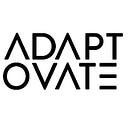Why can Agile be used in every industry- The universal truth explained

Information extracted from IPTC Photo Metadata
Much has been written about how Agile has extended beyond the software industry. It’s in the boardrooms and backrooms and everywhere inbetween of different industries.
I recently sat down with some of our global Adaptovate team. We discussed how agile can be used in every industry.
Mark Barber from our Melbourne office, concludes with 4 core values and demonstrates how they can extend beyond software.
To begin Barber says “Whilst the original Agile Manifesto was written for software development in 2001, Agile thinking has evolved to encompass much more. If you consider that Agile is a mindset described by some core values and principles it makes sense that we can apply this in many industries and not just software development”.
Steve Walton is an Aussie from our US division, living in New York (and currently working in our London office). Steve is our global employee! He puts it simply
“The Agile mindset helps people focus on prioritizing their work, reducing wastage on things that have not been agreed and making sure you are delivering the right output/produce. These are universal concepts that help us work more sustainably.” Click to tweet
Rachna Verma — a consultant from our Sydney office says “Every player in every industry wants to get faster, better, quicker. We are not prepared to settle for ordinary or the same and Agile is a proven method to release quicker to market, get customer feedback earlier on and test and learn.” Mina Gurgis, who works alongside Rachna in Sydney suggests “Agile is a mindset and a way of working and not just a set of tools.”
Mina believes Agile “works best when the problem to solve is complex and we don’t know exactly what the right solution is. Hence, we follow an iterative process of building a solution within a short fixed timeframe”.
Two good examples of this come from Verma who identified the online fashion retailer The Iconic and “the work undertaken to improve the customer returns process.” She also believes “Australia Post’s mission to get packages delivered to customers the first time” showed how Agile can be used to solve a massive consumer issue.
Gurgis continues, “We test the solution with the customers and incorporate their feedback in the next iteration. In a nutshell, we iteratively test and learn”.
He confirms “Agile is not for tech only. At ADAPTOVATE, we’ve implemented Agile transformations in small FinTech startups, government regulator agencies, big financial institutions, global mining companies and global oil & gas companies”.
Finally — here’s the part that may be useful to explain and expand on, with your own teams or your stakeholders.
Mark Barber asks us to consider 4 core values. He then simply demonstrates how each may apply to situations beyond software dev.
- Customer collaboration over contract negotiatio
Barber explains “Customers are integral to all businesses and it has never been more important to work closely with them in a way that provides flexibility. Take for example People and Culture teams within organisations, who have employees as their customers. The demand for talent has never been higher so it is crucial that these teams work closely with their customers and adapt based on their needs. Imagine if HR always stuck steadfast to outdated policies and contracts. “
- Working software [insert any type of product] over comprehensive documentation
“If you have a product that you build” Barber says, “regardless if it is software or a process redesign, a portrait painting, or even a house, the best way to test you are on the right track is to put in the hands of your customer as early and as often as you can.”
“We still need documentation, such as house plans, but until we are walking over that slab and through those walls we cannot feel what it will be like to live there and the earlier we are in the build the easier it is to make changes. “
- Responding to change over following a plan
Barber explains “By now you likely see that for the most part the Agile values are quite agnostic of software development.”
He continues, “Responding to change means to build flexibility into our planning and to make informed decisions about when and why to change direction. The Agile mindset is about valuing the act of planning over the plan itself. One of the bigger myths around Agile is that we don’t plan and that could not be further from the truth. We plan continuously, we just don’t build detailed plans around what we don’t yet know. Sport is a classic example of this value — sporting teams spend a lot of time planning for different scenarios and different opposition and can quickly react to new situations”
- Individuals and interactions over processes and tools
Finally Barber says this “This value speaks to me the most. Meaningful work is the product of people coming together to share ideas and solve problems. We need to create environments where they are free to do so and not restricted by processes and tools.
Buurtzorg, a health care provider in the Netherlands is a famous example of an organisational model that optimises for people and interactions over processes and tools. Teams self-manage in neighbourhood groups and decide themselves how they will work and deliver value to the customer.” He concludes.
It’s now a universal truth acknowledged that Agile extends beyond it’s beginnings. It’s a buzz word in a world of buzz words. However it’s important to fully understand the values behind Agile. It’s then you can see it’s extraordinary merit in bringing it into all industries.








